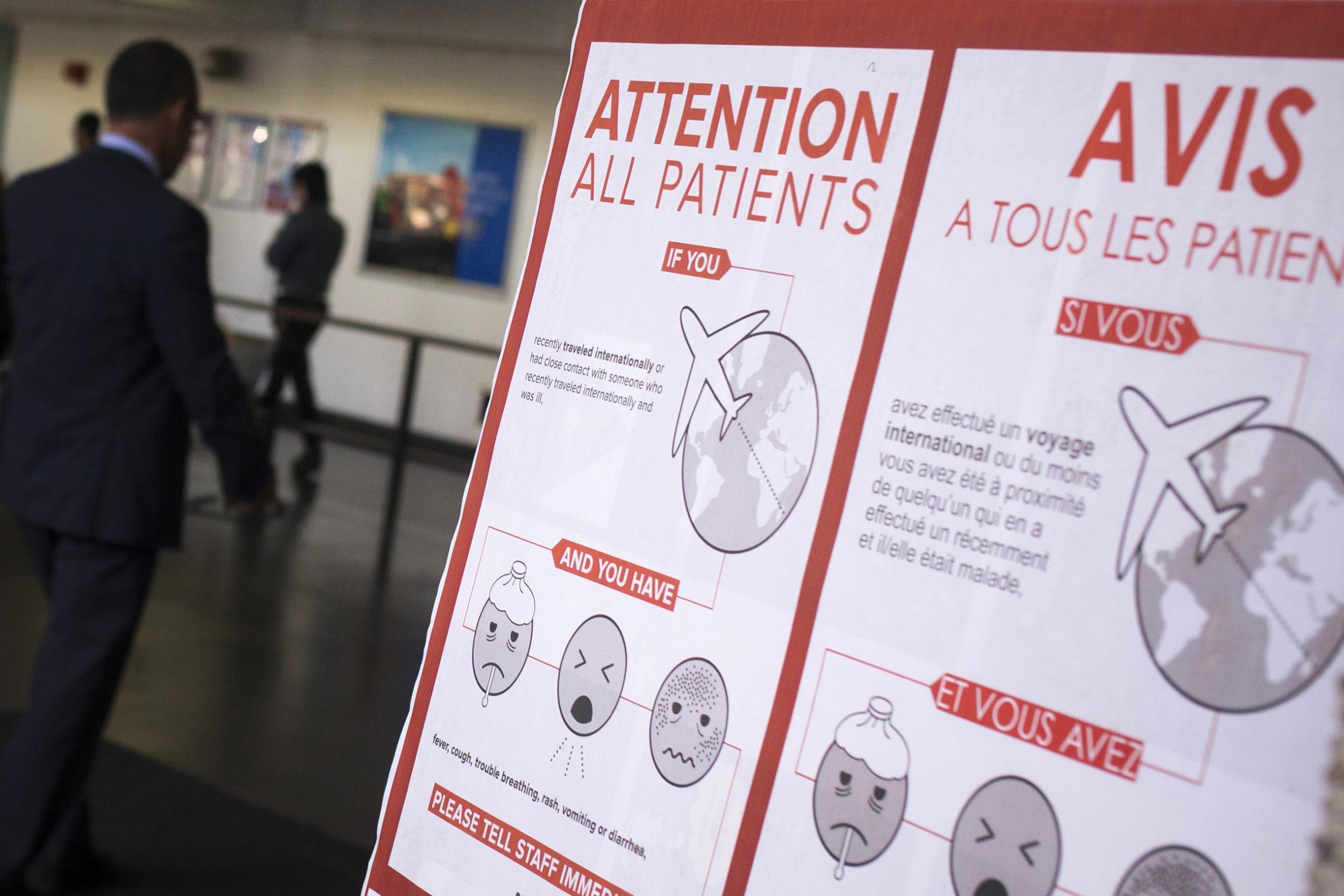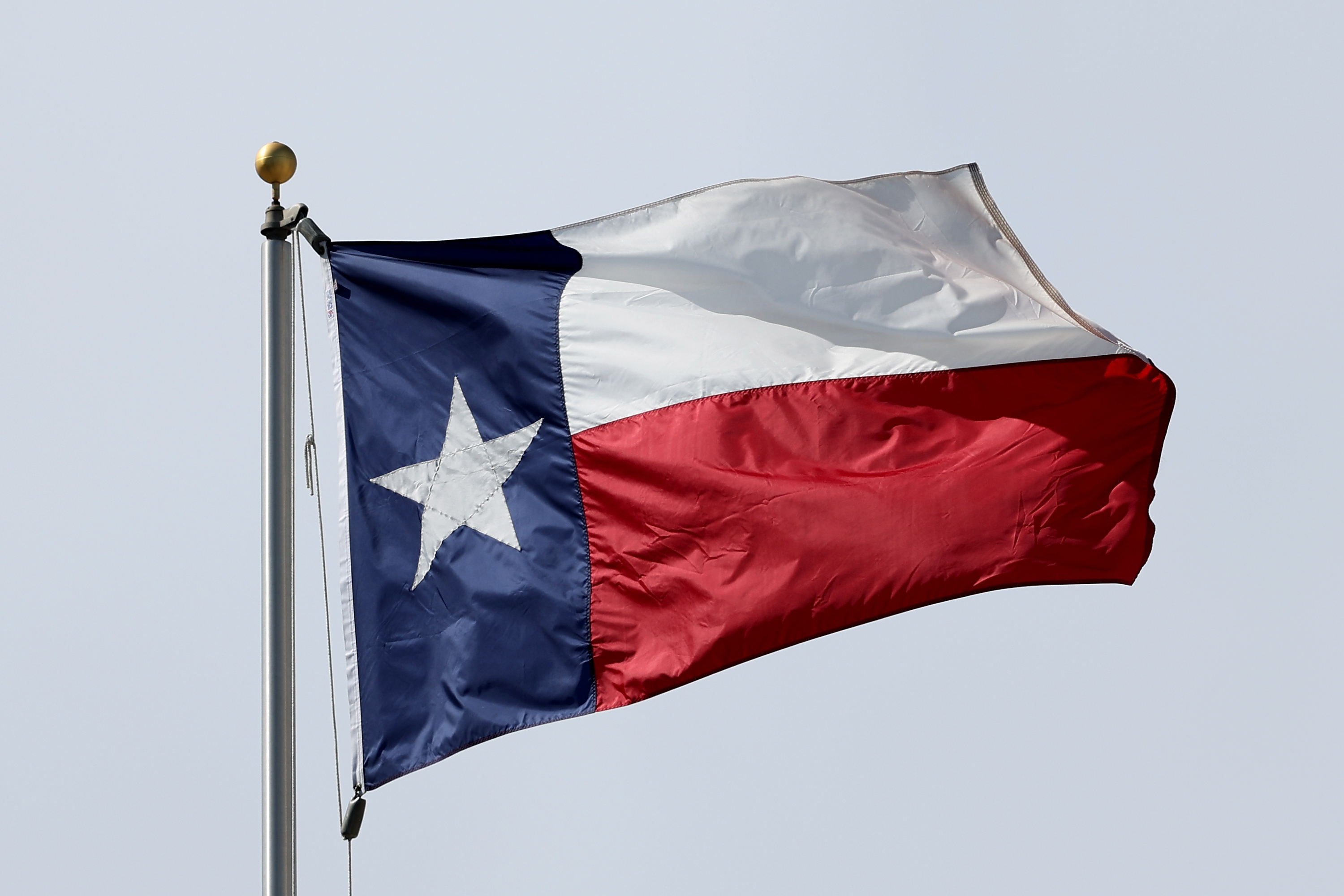
DALLAS (Reuters) - Weeks of worry about Ebola infection ended on Monday for several dozen people who came off watch lists in the United States, but 120 others were still being monitored for symptoms as the U.S. government ramped up its response to the virus.
Forty-three people who had contact with Liberian Thomas Eric Duncan, the first person diagnosed with the disease in the United States, were cleared of twice-daily monitoring after showing no symptoms during a 21-day incubation period, the Texas health department said. They included four people who shared an apartment with Duncan and had been in quarantine.
While only three people have been diagnosed with the disease in the United States, the end of monitoring for some could ease widespread anxiety over Ebola in the country, where some lawmakers have called for a travel ban from West Africa to check the spread of the virus.
"There's no question, today is a milestone day," Dallas Mayor Mike Rawlings said at a news conference. "It's a hurdle that we need to get over, but there are other hurdles to also jump."
The worst Ebola outbreak on record has killed more than 4,500 people, mostly in Liberia, Sierra Leone and Guinea.
The World Health Organization declared Nigeria free of Ebola on Monday after 42 days with no new cases, a success story for African nations struggling to contain the virus.
On Sunday, Liberian President Ellen Johnson Sirleaf urged stronger international action to control the epidemic, saying it was unleashing an economic catastrophe that would leave a "lost generation" of young West Africans.
Even as health officials cleared some of those who had been monitored for signs of Ebola, the U.S. government prepared to try to remedy missteps that rattled Americans' faith in the medical system after Duncan died on Oct. 8, and two nurses who treated him were infected.
The man newly-appointed by President Barack Obama to oversee the response, lawyer Ron Klain, will start work this week with a mandate to ease anxiety over the virus and fix federal coordination with states to control its spread. He was invited to testify at a House of Representatives oversight hearing on Friday, a committee official said.
The government also was expected to issue strict new guidelines in the near future telling U.S. health workers to cover skin and hair completely when dealing with Ebola patients.
The old guidelines, based on World Health Organization protocols, said workers should wear masks but allowed some skin exposure. The virus is spread through direct contact with the blood and bodily fluids of infected people.
In addition, the U.S. military plans to create an emergency response team of infectious disease doctors, nurses and trainers to help in the event of an Ebola crisis in the United States. The team would not be deployed in West Africa or elsewhere overseas.
'ZERO RISK'
The 43 people removed from watch lists included Louise Troh, Duncan's fiancée, and three others who shared an apartment with Duncan after he arrived in Dallas in late September.
"There's zero risk that any of those people who have been marked off the list have Ebola. They were in contact with a person who had Ebola and the time period for them to get Ebola has lapsed. It is over. They do not have Ebola," Dallas County Judge Clay Jenkins said at a news conference.
"They are people who have been through an incredible ordeal and they are people who need our compassion, our respect and our love," he said.
Citing Troh's concerns about how those who had been quarantined would be received by the public, Jenkins pleaded for compassion, particularly for Troh's 13-year-old son.
"Middle schoolers are some of the most ferocious and scariest people on the planet ... I need your help, parents. I need your help to treat that young man with the kind of love you'd want your own child treated with," he said.
Jenkins said an additional person would be removed from the watch list later Monday, and four others in the coming days.
The "magic date" for 27 people who remained on the lists after direct contact with Duncan was Nov. 7, said Rawlings, the Dallas mayor. "We're breathing a little easier, but we're still holding our breath a fair amount until November 7."
In a public letter during the weekend, Texas Health Resources Chief Executive Barclay Berdan acknowledged that Texas Health Presbyterian, where Duncan first went, made mistakes, including initially not diagnosing him with Ebola.
Berdan said aggressive actions since then ensured that the hospital was a safe place, and that outside experts would be consulted to determine how the two nurses became infected.
Uncommon Knowledge
Newsweek is committed to challenging conventional wisdom and finding connections in the search for common ground.
Newsweek is committed to challenging conventional wisdom and finding connections in the search for common ground.





